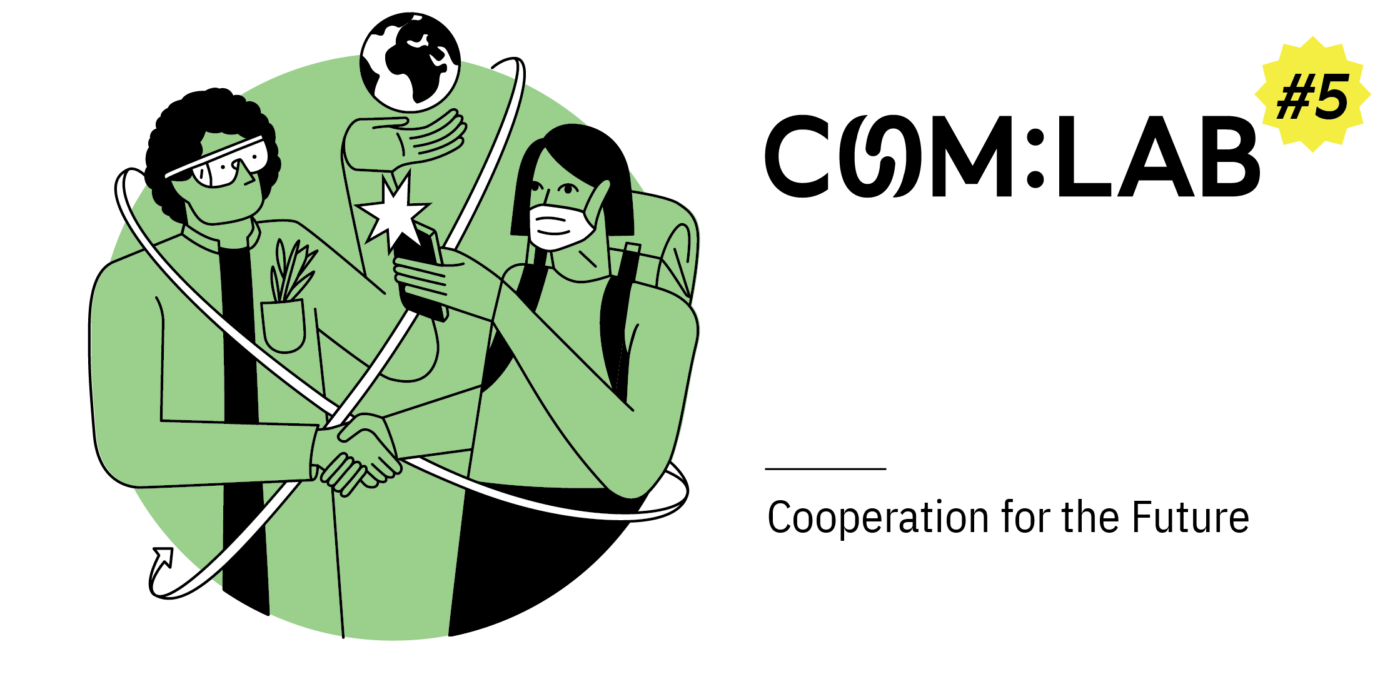ComLab#5: The New Global Cooperation for the Future

Without sharing ideas, goods and common human values around the world, our lives would be much poorer and even endangered. The global movement of people, raw materials and innovations changed our lives for the better and continues to do so. Yet, the pandemic, political upheaval, and resource dependencies pose new challenges to the idea of a collaborative international community.
Cross-border phenomena like (climate) migration and COVID-19 are causing us to rethink established notions of mobility, international trade and work, and the way we treat the environment. They are reminding us that resources are finite, and the global community is vulnerable, raising the question as to what the future of globalisation and exchange will look like. What lessons can be learned from current crises? How can goods and ideas be shared globally in a sustainable, fair and more secure way? What opportunities are inherent in digital infrastructures and services? How should we envision human mobility and migration? How can we respond to increasing political isolationism and nationalist ideologies?
The fifth Communication Lab wants to explore the future of global exchange in its political, social, economic, and ecological dimensions. Science and the media can point the way to innovative approaches and best practices for our future global community.
Award-winning contributions
On September 2, 2022 the projects of the fifth Communication Lab were honoured at a virtual award ceremony.
The external jury, comprising Ulrike Winkelmann (editor-in-chief, taz), Alok Jha (science correspondent, The Economist) and Jens Radü (managing editor, DER SPIEGEL) as well as Georg Scholl (head of the Humboldt Foundation’s Press, Communications and Marketing Division) selected the top four project ideas. The jury was impressed by their originality of topics, the appealing way in which facts and storytelling was interwoven as well as the appropriateness in their approach to address their chosen target audience.
Prize winners
The prizes for the four most successful pieces go to:
- the journalist Carl Smith (Australian Broadcasting Corporation) and the data specialist Mirela Tulbure (Center for Geospatial Analytics, North Carolina State University) for their audio documentary “Meet the communities using their own backyards to try to tame the next big flood” about grassroot communities that have teamed up with scientists to prevent disastrous flooding.
- the journalist Amie Liebovitz (BBC) and the sociologist Elisabeth Gruber (Friedrich-Alexander-Universität Erlangen-Nürnberg) for a story pitch about a municipality in Austria that is breaking new ground in helping refugees and integrating them as workforce in the tourism sector.
- the journalist Martina Weber and the sustainability researcher Veeresh Anehosur (Nunam) for their radio play “The E-E-Room (The Energy-Emergency-Room)” about the global dimensions of second-life use of lithium batteries.
- a special award goes to the journalist Trisha Dantiani (CNN Indonesia) and the media scientist Mengdi Tao (Tsinghua University, Beijing) for their project “Refugee Reels” that examines the experience of young refugees in Indonesia through Instagram.
The journalist Lisbeth Schröder and the sociologist Amadeo Gandolfo received an honorary mention for their project “Drawing for health – how making a comic can help to cope wtih mental problems” – a fanzine combining testimonies by people affected, scientific facts and comics on the topic of mental health problems.
The winning entries are available on the AvH site.

